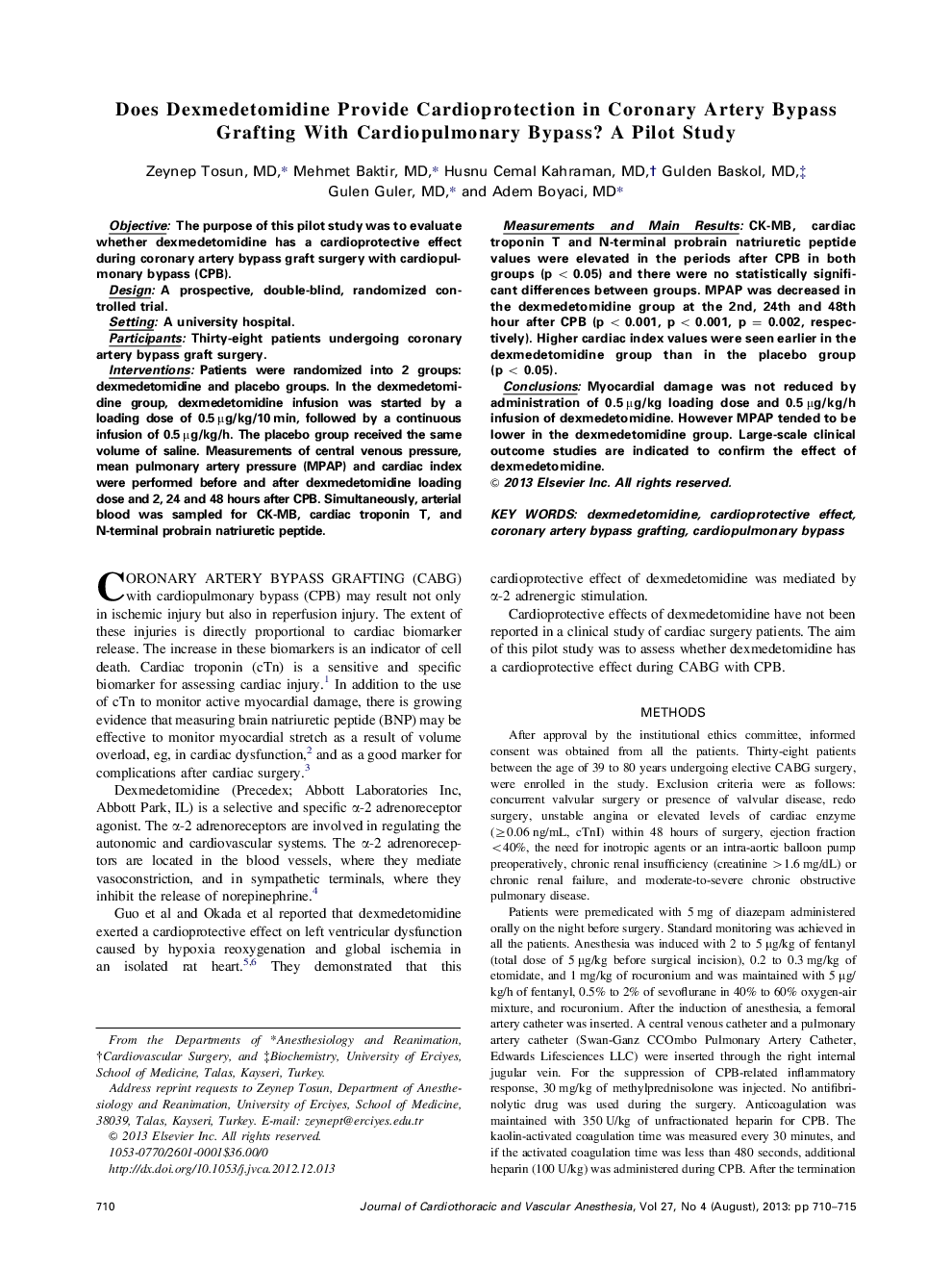| Article ID | Journal | Published Year | Pages | File Type |
|---|---|---|---|---|
| 2760003 | Journal of Cardiothoracic and Vascular Anesthesia | 2013 | 6 Pages |
ObjectiveThe purpose of this pilot study was to evaluate whether dexmedetomidine has a cardioprotective effect during coronary artery bypass graft surgery with cardiopulmonary bypass (CPB).DesignA prospective, double-blind, randomized controlled trial.SettingA university hospital.ParticipantsThirty-eight patients undergoing coronary artery bypass graft surgery.InterventionsPatients were randomized into 2 groups: dexmedetomidine and placebo groups. In the dexmedetomidine group, dexmedetomidine infusion was started by a loading dose of 0.5 μg/kg/10 min, followed by a continuous infusion of 0.5 μg/kg/h. The placebo group received the same volume of saline. Measurements of central venous pressure, mean pulmonary artery pressure (MPAP) and cardiac index were performed before and after dexmedetomidine loading dose and 2, 24 and 48 hours after CPB. Simultaneously, arterial blood was sampled for CK-MB, cardiac troponin T, and N-terminal probrain natriuretic peptide.Measurements and Main ResultsCK-MB, cardiac troponin T and N-terminal probrain natriuretic peptide values were elevated in the periods after CPB in both groups (p<0.05) and there were no statistically significant differences between groups. MPAP was decreased in the dexmedetomidine group at the 2nd, 24th and 48th hour after CPB (p<0.001, p<0.001, p = 0.002, respectively). Higher cardiac index values were seen earlier in the dexmedetomidine group than in the placebo group (p< 0.05).ConclusionsMyocardial damage was not reduced by administration of 0.5 μg/kg loading dose and 0.5 μg/kg/h infusion of dexmedetomidine. However MPAP tended to be lower in the dexmedetomidine group. Large-scale clinical outcome studies are indicated to confirm the effect of dexmedetomidine.
